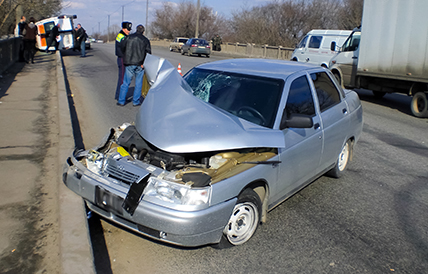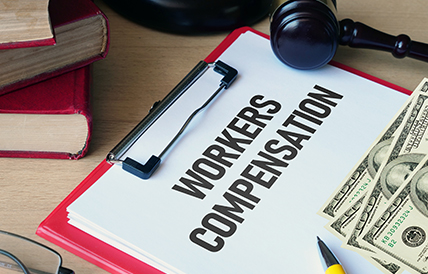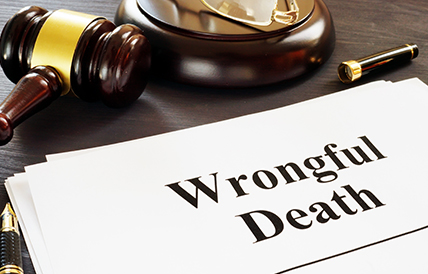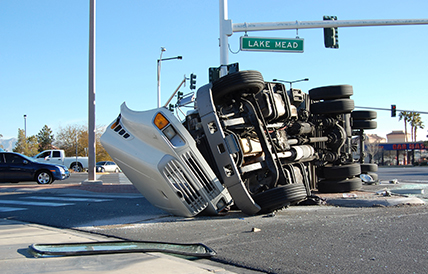Personal Injury Attorney in Lancaster, SC
Accidents can happen suddenly, catching even the most prepared person off guard. One minute, you may be strolling to a restaurant after a long day at work, and the next minute, someone else's carelessness can change your life forever. Personal injury victims not only endure negligence but also experience pain and worry about their families and ability to work. Often, these victims cannot afford to focus on work and family when they're injured or even clinging to life in an ER. Without a personal injury attorney in Lancaster, SC, to fight for their rights, these same victims provide official statements by mistake to insurance companies. They accept embarrassingly low settlement offers without realizing that they deserve much more.
If you've been hurt in an accident recently, ask yourself these questions:
- Now that you're injured, what happens next?
- How am I going to pay for my stay at the hospital?
- Am I going to get fired because I've missed work?
- How will I be able to become independent again after this serious injury?
With 30.21 personal injury cases for every 100,000 residents in South Carolina - 217% higher than the national average - it's not surprising that men and women like you are asking the questions above. At the Max Sparwasser Law Firm, LLC, our hearts hurt for victims who are suffering needlessly.
Because, at the end of the day, they're not just hurting physically. They're struggling to make ends meet due to the cost of car repairs, medical bills, doctor's appointments, and loss of income. Fortunately, personal injury laws in South Carolina state that the parties found responsible for your suffering and pain must account for your expenses. With a personal injury lawyer by your side, you have a real shot at getting the compensation you deserve.
- Your Local Personal Injury Attorney
- Max Sparwasser: A Personal Injury Lawyer in Lancaster, SC You Can Trust
- Injured in a Car Wreck? It's Time to Fight for Your Rights
- The Truth About Insurance Companies and Car Accidents in South Carolina
- Trust the Max Sparwasser Law Firm Difference
- Worker's Compensation Personal Injury
Max Sparwasser: A Personal Injury Lawyer in Lancaster, SC You Can Trust
If you've been injured in an accident in South Carolina, you have the right to file an insurance claim or a personal injury lawsuit against the responsible party. If the insurance company doesn't offer a fair settlement, consider speaking with our Lancaster personal injury lawyer.
At the Max Sparwasser Law Firm, LLC, our goal is to help accident victims in South Carolina recover the maximum amount for their losses, including damages for pain and suffering. Unlike some personal injury law firms, our expert attorneys know that no two cases are ever exactly the same. That's why we take a personalized approach to each case that comes across our desk.
You can rest easy knowing that your personal injury case starts with a free consultation with an experienced personal injury lawyer. During this initial meeting, we'll review your accident, determine liability, and recommend the best legal course of action for you. Max Sparwasser and his team focus on a range of personal injury categories, including the following:
Why Choose The Max Sparwasser Law Firm, LLC?
Injured victims choose Max Sparwasser Law Firm, LLC because we put our clients' needs first.

We Work for You
Max dedicates focused attention to your claim and is confident that once you've met and talked to him, you will feel comfortable entrusting him with your personal injury case.
Seasoned Personal Injury Lawyer
Your case is going to be handled personally by Max, properly and professionally. NO FEES are collected unless you are paid benefits.
Personalized Attention
Now that you know a little bit more about our personal injury law firm and how we take care of our clients, let's take a look at two of the most common types of personal injury cases we take: Car accidents and workers' compensation.
As an experienced personal injury attorney, Max has the right training and legal tools to assist with your compensation claims and your personal injury case as a whole.
Injured in a Car Wreck? It's Time to Fight for Your Rights
If you've ever been in a minor fender bender, you know how frustrating and scary it can be when police are called and insurance companies get involved. Dinging a car is one thing, but a full-on car wreck is a completely different story. A car accident in Lancaster can result in significant expenses such as vehicle damage and medical costs.
If a distracted driver kills your loved one, the impact on your family can be profound and long-lasting. Survivors of car accidents often experience emotional distress, post-traumatic stress disorder, and other challenges that alter their quality of life. In the face of these life-changing events, aggressive representation from a personal injury attorney in Lancaster, SC, can maximize your chances of winning your case.

The Truth About Insurance Companies and Car Accidents in South Carolina
Here's an uncomfortable truth to digest: Insurance companies often aim to pay out as little as possible. Fortunately, you can protect yourself from their tactics by getting the right legal support for your personal injury claim.
When you report a crash to an insurer, they'll assign an adjuster to your case. However, these adjusters deal with many cases and may not fully understand yours. If an insurance claims adjuster contacts you, be cautious. They aren't looking out for your best interests. It's common for adjusters to push for settlements that undervalue your claim.
Stick to the facts if you talk to an adjuster and refuse to provide a recorded statement or agree to any settlement. Instead, wait until you've consulted with a personal injury attorney. At the Max Sparwasser Law Firm, LLC, our team of car accident lawyers will assess the true worth of your claim and protect you from being taken advantage of by insurance companies.
The Truth About Insurance Companies and Car Accidents in South Carolina
When you hire a personal injury attorney in Lancaster, SC, from Max Sparwasser Law Firm, you don't have to know all our state's car crash and insurance laws. We have the expertise, knowledge, and resources to handle any case related to a car accident in the Lowcountry. Our long-time car accident attorneys can handle the legal proceedings for you and provide you with peace of mind during negotiations. With that said, we understand that the more you know about South Carolina's car wreck laws, the better you can safeguard your rights after an accident.
As such, here are three car wreck laws in South Carolina you should understand:
It's important to keep in mind that there's a time limit, known as the statute of limitations, for filing a car accident claim in South Carolina. Typically, you need to pursue your claim against the at-fault driver or another party within three years of the car accident. However, there are certain cases that require action within two years. If you fail to file your personal injury claim within the specified deadline, you may forfeit your right to make a claim permanently.

Like many other states, South Carolina operates under a "fault" insurance system. This system holds the driver responsible for covering the damages of the injured party if they are at fault for the accident.

If you are in a car accident and it leads to a personal injury claim due to negligence, the court needs to determine that you (the plaintiff) are 50% or less at fault for the accident. If you are found to be more than 50% responsible, you will lose your right to seek compensation. However, if you are 50% or less at fault, you will receive at least some compensation. Your award will be reduced by the percentage of fault attributed to you.


The Role of Negligence in South Carolina
When drivers take the wheel, they bear the responsibility of being careful and attentive to their surroundings. This means watching out for other drivers, pedestrians, cyclists, and all road users. However, if a driver chooses to text, eat, or talk on the phone while driving, they are failing to do so and are behaving negligently.
Negligence involves acting carelessly, resulting in harm or damage. Other examples of negligence include:
- Running Red Lights
- Speeding
- Failure to Yield
- Distracted Driving
- DUI
- Improper Lane Change
- Much More
If you've been in a car accident and need help understanding our local laws or the role of negligence in your case, schedule your free claim assessment with the Max Sparwasser Law Firm, LLC, today. The sooner you know your rights and file a claim, the sooner our lawyers can advocate on your behalf. Our accident lawyers will uphold your best interests despite pushback from insurance companies and the complex legal system in South Carolina.
Workers' Compensation Claims in South Carolina Explained
While South Carolina's workplace incidence rate was lower than the national average in 2020, tens of thousands of workers were reportedly injured on the job. In fact, private employers in South Carolina reported 29,100 nonfatal injuries and illnesses, resulting in an incident rate of 2.1 cases per 100 full-time equivalent workers. In 2021, the private sector reported 30,300 such injuries and illnesses, leading to an incidence rate of 2.2 cases per 100 workers, many of whom hired.
Public sector employers reported 8,100 injury and illness cases in 2021, with 72 percent occurring among local government workers. Occupational illness trends in South Carolina mirrored those seen nationwide. In 2020, the private sector accounted for 4,200 of the total reported cases, and 3,100 in 2021, showing a 26 percent decline.
Respiratory illnesses made up 79 percent of the total occupational illnesses reported in South Carolina in 2020. In 2021, 89.8 percent of private industry recorded incidents were injuries.

Personal injury attorneys in Lancaster, SC, fought some of the state's biggest employers in court, including brands such as:
- Volvo
- BMW
- College of Lancaster
- Boeing
- Medical University of South Carolina
- Kapstone
- Roper Hospital
- Rober Bosch Corporation
While there is no single federal law governing workers' compensation, every state in the U.S. has its own workers' compensation system. This program provides financial benefits to employees who experience job-related injuries or illnesses. Typically, an injured worker can receive workers' compensation benefits without needing to prove their employer's negligence. In exchange, the employee forfeits the right to file a personal injury claim against the employer.
Under the state workers' comp system, an injured employee will be reimbursed for all necessary medical treatment following a workplace accident. If the injury or illness leads to more than seven days of missed work, the employee will receive 66.66% of their average weekly wage, up to a maximum amount. Workers may also receive compensation for permanent disabilities or disfigurement. The maximum award for death or total disability is 500 weeks of compensation.
Lifetime benefits are available in cases of paraplegia, quadriplegia, and brain injury. It should be noted that trying to
Who Can Receive Workers' Comp Benefits in South Carolina?
In South Carolina, most employees are eligible for workers' compensation benefits if they suffer an injury or illness while working. Employees don't need to prove fault; they just need to prove that the injury or illness happened at work or during a work-related activity. Unfortunately, there are exceptions under the SC State Workers' Compensation Act, meaning some employers never qualify for workers' compensation.
Those restrictions apply to:
- Federal Employees
- Small Businesses with Three or Less Employees
- Agricultural Employees
- Casual Employees
- Some Realtors
- Corporate Officers
- Railroad Workers
Employers who fall under the SC State Workers' Compensation Act must maintain the required minimum amounts of workers' comp insurance. If you're trying to pick up the pieces after being injured at work, contact the Max Sparwasser Law Firm, LLC today. Our personal injury attorneys will work tirelessly to get you the help you need to rebuild your life.

Top Reasons to Hire a Worker's Compensation Personal Injury Attorney in Lancaster, SC
Many injured workers assume they can save money by foregoing a personal injury attorney to oversee their workers' comp claim. In reality, many plaintiffs lose money - or don't get the proper amount they're owed - when they choose not to hire a lawyer. If you were recently injured at work and are on the fence about retaining counsel for your case, keep these facts in mind.
To safeguard your rights and ensure you receive fair compensation, injured individuals must file a workers' compensation claim. Unfortunately, many people come up with reasons why they shouldn't file a claim before determining whether their claim is valid.
Some of the most common reasons for doing so include:
- Reporting the Injury to Management and Continuing to Work
- Having an Existing Condition
- Fear Over Job Termination
You should know that making the decisions above doesn't necessarily disqualify you from making a workers' comp claim. That's why it's so important to work with an experienced workers' compensation lawyer. Great workers' comp attorneys - like those at the Max Sparwasser Law Firm, LLC - thoroughly assess your case and help determine whether you have a valid claim for workers' compensation benefits.

Here's a safely kept secret in the insurance industry: Skilled workers' compensation lawyers create risk. Insurance companies hate risk because it exposes them and causes them to lose money. An experienced workers' compensation lawyer takes on risk by developing the best strategy to maximize your benefits and gathering evidence that will be admissible in a hearing.
Do you truly understand the benefits you're entitled to? Do you know what you need to prove in order to win? Do you know how to effectively present that evidence? This can be quite complex, even for attorneys, which is why an injured employee alone doesn't pose much of a threat to the insurance company. That's why professional help from a qualified attorney is essential in workers' comp cases.

It's important to keep in mind that there's a time limit, known as the statute of limitations, for filing a car accident claim in South Carolina. Typically, you need to pursue your claim against the at-fault driver or another party within three years of the car accident. However, there are certain cases that require action within two years. If you fail to file your personal injury claim within the specified deadline, you may forfeit your right to make a claim permanently.

It's important to keep in mind that there's a time limit, known as the statute of limitations, for filing a car accident claim in South Carolina. Typically, you need to pursue your claim against the at-fault driver or another party within three years of the car accident. However, there are certain cases that require action within two years. If you fail to file your personal injury claim within the specified deadline, you may forfeit your right to make a claim permanently.

Trust the Max Sparwasser Law Firm Difference
Whether you have been injured in a car accident, hurt at work, or are struggling with another type of personal injury situation, know that our team is here to help. Our personal injury attorneys in Lancaster, SC are insurance claims experts and know how to negotiation and achieve maximum financial compensation. The best part? We take all cases on a contingency fee basis, meaning you don't pay us unless we win. That's the Max Sparwasser Law Firm difference. Contact our office today to learn more about personal injury cases in South Carolina and whether or not you have a valid claim.
Request an appointment
Latest News in Lancaster, SC
Lancaster officials fear hypothermia cases will rise with uptick in homelessness
wcnc.comhttps://www.wcnc.com/article/news/local/hypothermia-homelessness-lancaster-sc-1-17-2025/275-7edc583c-6e6a-4b1f-96fb-a84fe0e37283
The mayor said most unhoused neighbors crowd in the city to access what they do have.More VideosLANCASTER, S.C. — The colder temperatures this season are raising concern for officials in Lancaster County.The coroner’s office says with an uptick in homelessness and a lack of resources for unhoused neighbors, there’s a high chance the county could see its first hypothermia death case in years.“I just would not want ...
The mayor said most unhoused neighbors crowd in the city to access what they do have.
More Videos
LANCASTER, S.C. — The colder temperatures this season are raising concern for officials in Lancaster County.
The coroner’s office says with an uptick in homelessness and a lack of resources for unhoused neighbors, there’s a high chance the county could see its first hypothermia death case in years.
“I just would not want anyone’s exposure to this weather to cause their demise,” explained Karla Deese, the coroner for Lancaster County. “There’s nowhere to go with heat or power and I’m not sure that they would be acclimated to the cold weather -- so I do have concerns."
Deese says with the fact the unhoused community is “exposed and without shelter”, combined with the temperature hitting the “lowest of the year so far”, it’s only a matter of time.
Right now, there’s only one emergency warming center in the county for people to take advantage of at night. This resource is also only available when temperatures hit below freezing.
“It’s a tough problem – it’s an intractable problem. We really need some additional resources. It’s a much larger issue than just the city. The lack of mental health resources from the state is one of the biggest issues – the lack of addiction recovery services is an issue,” explained Lancaster mayor Alston DeVenny.
He said most unhoused neighbors crowd to the city of Lancaster because of what resources they do have – but he also explained the problem is going to require outside help.
“We’ve been responding with the services that we have available, but they’re limited with our small municipality,” DeVenny said.
Contact Anna King at aking2@wcnc.com and follow her on Facebook, X, and Instagram.
Lancaster coroner worries increasing homelessness plus freezing temps could equal an uptick hypothermia deaths
Scott Morganhttps://www.southcarolinapublicradio.org/sc-news/2025-01-10/lancaster-coroner-worries-increasing-homelessness-plus-freezing-temps-could-equal-an-uptick-hypothermia-deaths
On Thursday afternoon, Donna Andrews, the reference services manager at the York County Library’s main branch in Rock Hill, started informing some of the library’s upstairs visitors that the doors would close at noon on Friday and not open back up until Monday.The reason was the coming of a winter storm that was set to encase Rock Hill and much of the Upper Midlands and Upstate in a layer of ice and snow.“For the folks that we recognize, who do come in on a regular basis,” Andrews said, “we will be...
On Thursday afternoon, Donna Andrews, the reference services manager at the York County Library’s main branch in Rock Hill, started informing some of the library’s upstairs visitors that the doors would close at noon on Friday and not open back up until Monday.
The reason was the coming of a winter storm that was set to encase Rock Hill and much of the Upper Midlands and Upstate in a layer of ice and snow.
“For the folks that we recognize, who do come in on a regular basis,” Andrews said, “we will be telling them that we will be closing at noon tomorrow and will be closed all day Saturday. Because it can be a hardship for them to find someplace to go if we’re not open.”
To a lot of library patrons, a locked door is little more than an inconvenience. But a lot of these guests, looking out the windows at the municipal complex courtyard or scrolling through phones in soft chairs, the library is where they spend their days. These are the visitors without homes to return to, and they need to make plans for how to spend their days out of the elements, if they want to.
A common option is the city’s free bus service, which unhoused residents sometimes ride for temporary shelter. But the storm could cause disruptions in service.
That leaves the shelters, which the city operates through Pathways Community Center on Cherry Road.
But not everyone wants to spend time in shelters. Cathy Harris, for example, has been living outside for a year, sleeping where she can find a spot of ground and bundling up against the weather.
I ran into Cathy at the library Thursday and asked her what her plans were, given the possibility of sub-freezing temperatures, snow, and ice for the weekend ahead.
“We haven’t thought of it yet,” was her answer. “We just play it by ear.”
Harris also said she’s unconcerned about the weather because she’s been through it before. Her plan, such as it is, is to wrap up in blankets and wait it all out, unconcerned.
“We’ve been in an ice storm before,” she said. “It’s been 19 degrees, so ….”
Our conversation was brief and terse. Harris would endure what she had to and come back to the library when she could. She gave no thought to the real consequences of spending the night on frozen ground, such as hypothermia.
Karla Deese, on the other hand, thinks about that kind of thing quite a lot.
“It’s something that's very much in the forefront of our minds when we're out doing investigations,” Deese said Friday. “It’s the first thing we look for if someone is found outside.”
Deese is the coroner for Lancaster County, where a hypothermia-related death hasn’t been reported in several years. But she’s worried that that might change, as more people who are unhoused, unsheltered, and unconcerned about the dangers of living outdoors in harsh weather find their way onto the streets.
“It's been a few years since I've had a hypothermia case,” Deese said. “However, we have not been in the homeless situation that we are in now.”
Between 2021 and 2024, the number of individuals in Lancaster County experiencing homelessness leapt from 47 to 77, according to point-in-time, or PIT, data from the United Way of Lancaster County. Three in every four of those counted said they had experienced unsheltered homelessness, meaning they either chose to eschew shelter or couldn’t find a bed in one.
These numbers are, for context, considered even by those who conduct the PIT count to be an underrepresentation of the actual number of adults and children experiencing homelessness. In fact, the National Law Center on Homelessness and Poverty estimated that PIT counts can be between 2.5 to 10.2 times lower than real homeless numbers.
According to the United Way report, half of those who reported being unsheltered in Lancaster last year were either sleeping in their cars or on the ground.
For Deese, the growing issue of exposed, unsheltered people in Lancaster County is the result of a lack of available housing.
“Unfortunately, we live in a society now [in which] housing is not very affordable,” she said. “People have lost job, and the economy is not very friendly to them for various different reasons. So, you do have people who are homeless.”
Affordability is an increasing issue around South Carolina, and that includes Lancaster. According to Zillow, the median price for a house in the county jumped from $200,000 to nearly $270,000 between January of 2021 and November of 2024. If you back things up to January of 2020, the median price for a house in Lancaster today is about $95,000 more expensive.
And that’s just the price of the house. In January of 2021, the mortgage interest rate was 2.79 percent. On Jan. 9 of this year, it was 6.93 percent.
In real numbers, that means the median house bought in January of 2021 in Lancaster, given a 20 percent payment on a 30-year fixed-rate mortgage, would run a homeowner about $855 per month.
The median home bought in November will cost a homeowner about $1,590 per month.
And while it’s harder to break down the effects of escalating rent in Lancaster – its data get lumped into general data for the Charlotte metro – numbers from ApartmentList show that median rents, all swirled together, were about $1,000 more per month in November than they were in January of 2021 in the Charlotte metro statistical area.
For Deese, the pinch of affordable housing is what she most worries will increase the number of people who will find themselves sleeping in cars or sheds or abandoned buildings without utilities.
“There’s obviously no heat,” she said. “There's a little more coverage from the dampness and the dew that then turns into frost, but it's still equal [to the] outside temperature.”
And she worries about this confluence of more people on the streets meeting temperatures below freezing.
“If we see an uptick in [hypothermia deaths], I would not be surprised,” Deese said. “Six years ago, hypothermia would be kind of a one off. And usually, it was related to someone with dementia. someone who was lost, those kinds of things. Now, due to the homeless situation, I very much fear that we’re going to have that happen.”
Huge new Indian Land subdivision could go near Sun City. Here’s how many homes they want
John Markshttps://www.heraldonline.com/news/business/article298242153.html
A massive new senior living community could come to Lancaster County, just south of Sun City in Indian Land.Delray Beach, Florida, company Kolter Group Acquisitions applied for several county zoning changes to allow a community called Cresswind. It would be an age-restricted senior community by Kolter Homes on nearly 870 acres.A sketch plan submitted to the county shows 853 home lots....
A massive new senior living community could come to Lancaster County, just south of Sun City in Indian Land.
Delray Beach, Florida, company Kolter Group Acquisitions applied for several county zoning changes to allow a community called Cresswind. It would be an age-restricted senior community by Kolter Homes on nearly 870 acres.
A sketch plan submitted to the county shows 853 home lots. Plans don’t indicate the cost of the project. A call to the developer fromn The Herald wasn’t immediately returned Thursday afternoon.
The western end of Cresswind would be Van Wyck Road, across from thousands more senior living homes at Sun City. Cresswind would stretch east to U.S. 521, or Charlotte Highway, and south to the railroad line across from Waxhaw Highway and the Walnut Creek subdivision.
The sketch plan shows a new public boulevard through the property, giving it two access points. One would across Charlotte Highway from Henry Harris Road. The other would be on Van Wyck Road near River Bend Boulevard, in Sun City.
The sketch plan shows 409 acres of open space that include ponds, streams and wetlands. There’s a 7-acre amenity area at the center of the property in one sketch plan, though it’s broken into two pieces in another version.
The main entrance on Charlotte Highway would have more than 13 acres a business space and 3 acres of institutional space. That’s a zoning typically used for county properties like a park, fire station or emergency response substation.
The area zoned for business is described in documents only as retail or commercial construction.
The project requires a mix of decisions, include zoning and county land use plan changes. It also would involve a development agreement with the county.
A community meeting on Cresswind will be held at 5 p.m. Jan. 14 at the Del Webb Library in Indian Land.
The county Planning Commission will get more information when the proposal comes to that group Jan. 21. The commission will recommend for or against changes, but Lancaster County Council will have the final decision.
The county council won’t look at the Cresswind proposal until at least Jan. 27.
The decisions will take multiple council votes, lasting at least a month from when that group first sees the Cresswind proposal.
This story was originally published January 9, 2025 at 2:38 PM.
Lancaster holds off Independence at Phenom Hoops’ New Year’s Bash
Shane Connuckhttps://www.charlotteobserver.com/sports/high-school/article297414883.html
The Lancaster boys basketball team won a close one Friday afternoon.In a showcase game at the Phenom Hoops New Years Bash, the South Carolina state championship contender earned a 70-66 victory to knock off Indepen...
The Lancaster boys basketball team won a close one Friday afternoon.
In a showcase game at the Phenom Hoops New Years Bash, the South Carolina state championship contender earned a 70-66 victory to knock off Independence.
Jordan Watford, the Queens-bound combo guard and preseason Rock Hill Herald player to watch, led Lancaster with a 17-point performance — including a one-handed dunk on his defender’s head — on 7-of-10 shooting.
The Bruins (9-1), winners of four straight, also got 16 points from junior Columbus Parker — son of former J.C. Smith great Chris “Green Light” Parker — and 13 points from senior co-captain Jacarey Ballard.
Lancaster will play Cannon at the invitational in the Marvin Ridge gymnasium at 2:30 p.m. Saturday.
“Our defense translates into our offense,” Lancaster head coach Jerron Cauthen said. “It was a tough win, a very tough win. I’m excited for our guys. But we’ve got to have short-term memory.
“Don’t get too high on the wins, don’t get too low on the losses. (Saturday), we’ve got to get ready for another tough opponent here in (Concord’s) Cannon.”
Independence, ranked No. 10 in The Charlotte Observer’s latest Sweet 16, grabbed the early advantage and led at halftime after initially getting beaten in transition.
Both sides’ offenses played fast throughout the game, firing short passes and moving with intensity across the court. Lancaster took a slim lead during the third quarter, but it remained close until the finish.
“Independence High School is a very well-coached team,” Cauthen said. “We expected a competitive game, but we also expected to win. We practice hard. Our guys are committed. I’m committed. My staff is committed.
“Our community, as we can see, was here. We’re grateful and thankful to get this win.”
This story was originally published December 27, 2024 at 6:29 PM.
Lancaster County deputies warn of ongoing scam
wcnc.comhttps://www.wcnc.com/article/news/crime/scam-alert-lancaster-county-sc-1-25-2025/275-ea5f3b7c-441d-41e7-88e1-cc60136e57a5
The sheriff's office shared a message on Facebook detailing a recent encounter.LANCASTER COUNTY, S.C. — The Lancaster County Sheriff's Office is reminding neighbors to be wary of scams after a member of its team recently encountered a scammer.Deputies said in a Facebook post on Saturday that their media and public relations officer spoke on the phone with someone claiming to be a "Lieutenant Keith Miller&quo...
The sheriff's office shared a message on Facebook detailing a recent encounter.
LANCASTER COUNTY, S.C. — The Lancaster County Sheriff's Office is reminding neighbors to be wary of scams after a member of its team recently encountered a scammer.
Deputies said in a Facebook post on Saturday that their media and public relations officer spoke on the phone with someone claiming to be a "Lieutenant Keith Miller" and a "Captain Woodard" with the Lexington County Sheriff's Office, noting that one person was on the line and changed their voice slightly. The person reportedly tried to intimidate the public relations officer, claiming that they missed federal jury duty and that a judge had issued citations for their arrest.
"Throughout the conversation, [the scammer] used a fake southern accent and repeatedly said '10-4' as if using radio codes, which is highly unusual for a professional law enforcement conversation," part of the post read. "They even claimed they would contact the Clerk of Court to find out where I could pay fines at a “government-approved kiosk.” Then, they demanded that I drive to Walgreens to pay $1,500 in fines."
???? Scam Alert! ???? We want to keep everyone informed and safe, so here’s an important update. Our Media and Public...
Posted by Lancaster County Sheriff's Office SC on Saturday, January 25, 2025
The sheriff's office shared a reminder that legitimate law enforcement agencies will never ask someone to pay fines through Walgreens or other retail locations. Further, most law enforcement professionals don't use 10 radio codes when talking to citizens.
"If you ever receive a call like this, hand up and call the agency directly using the official number listed online to verify the claim," the sheriff's office added.
Lancaster County deputies said people should report suspicious activities either to local law enforcement or the Federal Trade Commission.
Here are some tips to avoid becoming a victim of a scam:
Disclaimer:



 (843) 864-6444
(843) 864-6444






 Call Us (843) 864-6444
Call Us (843) 864-6444